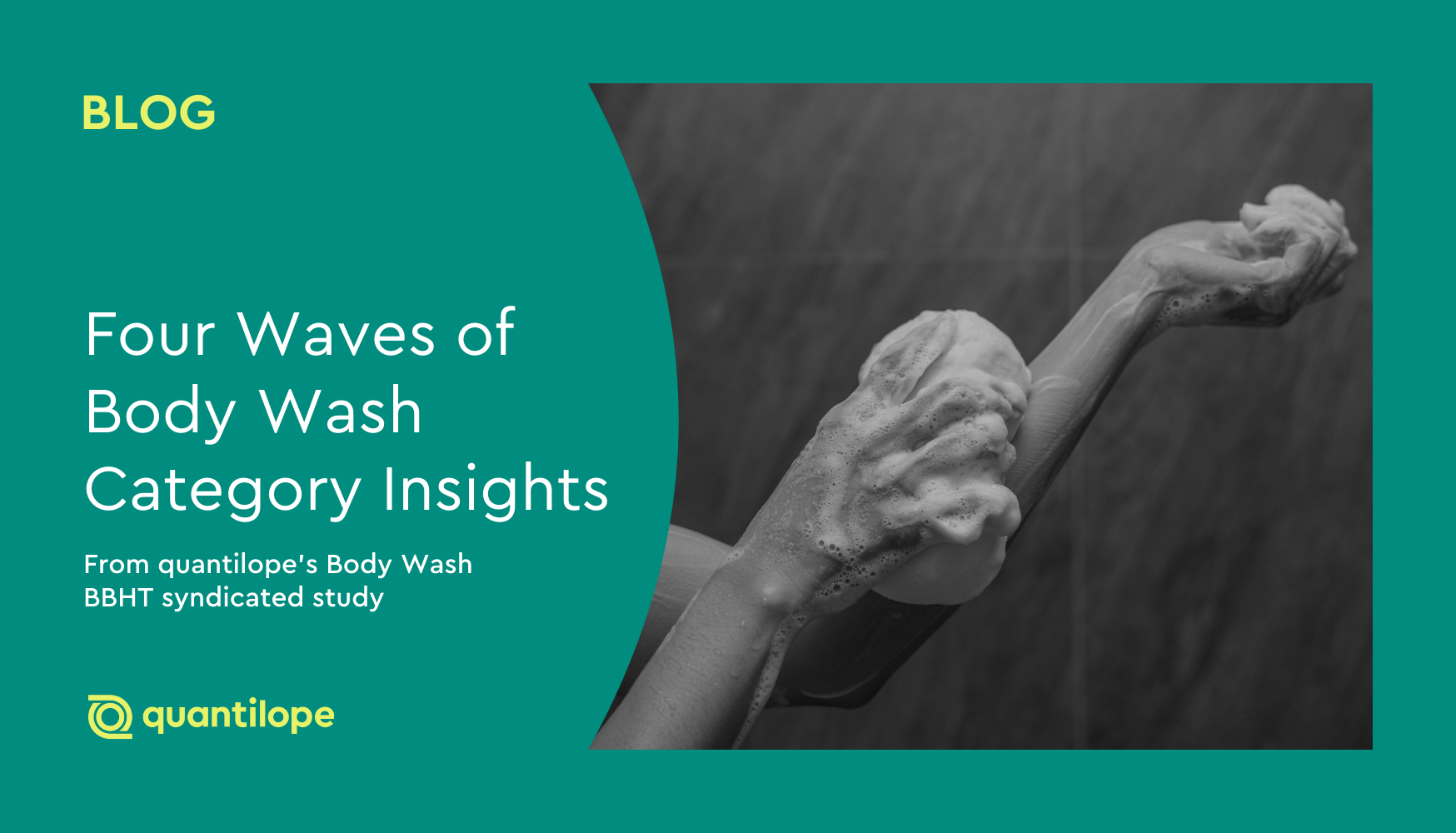Sustainability is important to fashion buyers. quantilope's new multi-country study (N=2005 with respondents from the US, Germany, Italy, and France) examines the current opportunities for fashion brands with an emphasis on fair fashion and the factors that consumers pay the most attention to when shopping for clothes.
As the fashion industry suffers a decline in sales, clothing companies continue to look for new ways to future-proof their brands. Here are four key fashion insights brands should focus on:
1. Quality and Fit are the Most Important to Consumers
quantilope's MaxDiff asked consumers what are the most important aspects they look for when shopping for clothes. As it reveals, quality is one of the most important criteria considered across countries followed by comfort and fit and an emphasis that the clothing suits the buyer’s style.
Price is a polarizing topic. Respondents see low prices as both very important and not at all important.
Brand image and awareness tend to be of lesser importance when purchasing apparel items, as is support from fashion influencers.
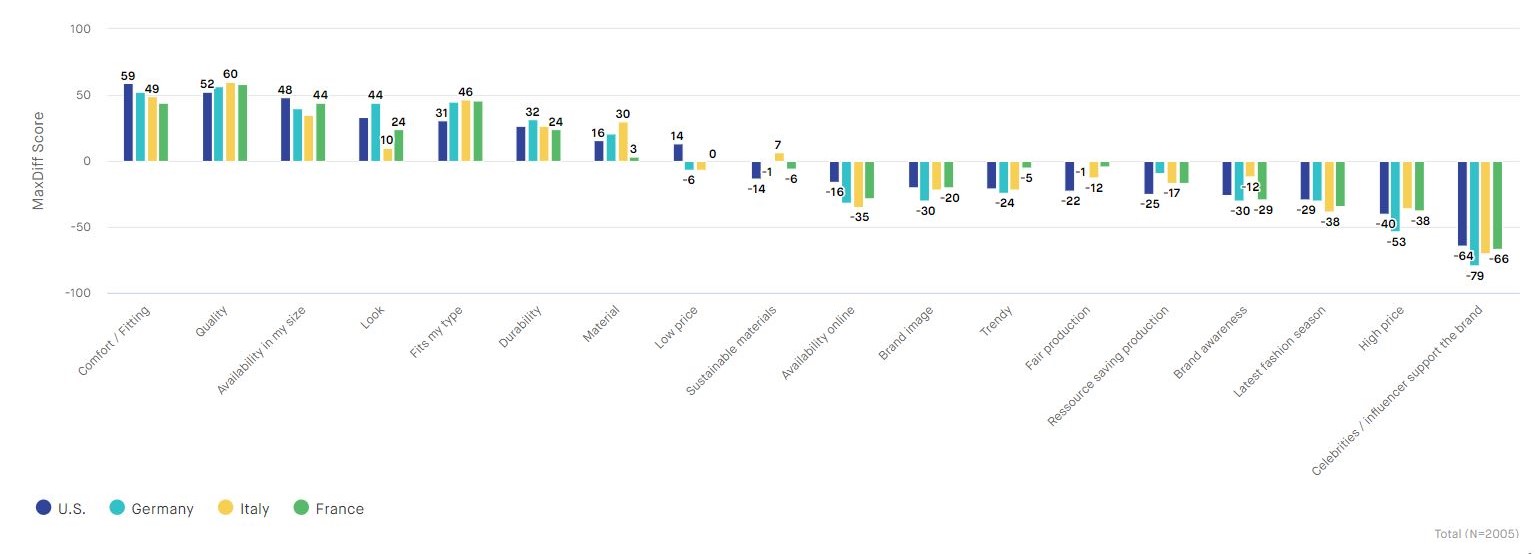
Chart: MaxDiff Scores - Ranking of the important criteria when buying fashion (country comparison)
Learn more about the method Maximum Difference Scaling (MaxDiff)
2. Consumers Care about Fair Fashion
Around 50 percent of respondents consider fair fashion to be important or very important. The highest rate was in Italy (61 percent) and the lowest in the U.S. (48%).
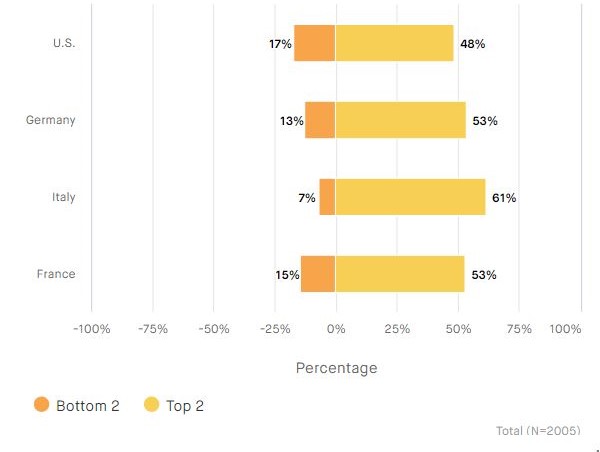 Chart: Importance of Fair Fashion (country comparison)
Chart: Importance of Fair Fashion (country comparison)
Germany’s fashion shoppers lead the way in fair fashion: almost half have made fair fashion purchases. France, Italy, and the U.S. exhibit great potential for fair fashion offers. Almost two-thirds of respondents indicate that they would consider buying fair fashion items. U.S. buyers are the most skeptical, with 19 percent rejecting fair fashion offers.
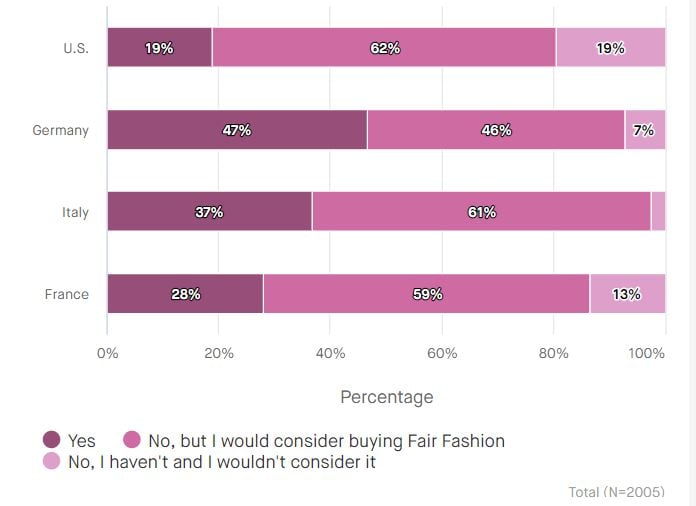 Have you ever purchased Fair Fashion? (im Ländervergleich)
Have you ever purchased Fair Fashion? (im Ländervergleich)
3. Environmentally Friendly Production and Recycled Materials Promote sustainability
Buyers associate sustainability with environmentally friendly production and recycled materials. More than 70% of respondents from European countries confirmed that environmentally friendly manufacturing is an important criterion for sustainability, and almost as many cited the use of recycled materials. Buyers in Germany find fair wages and toxin-free dyes to be very important sustainability considerations.
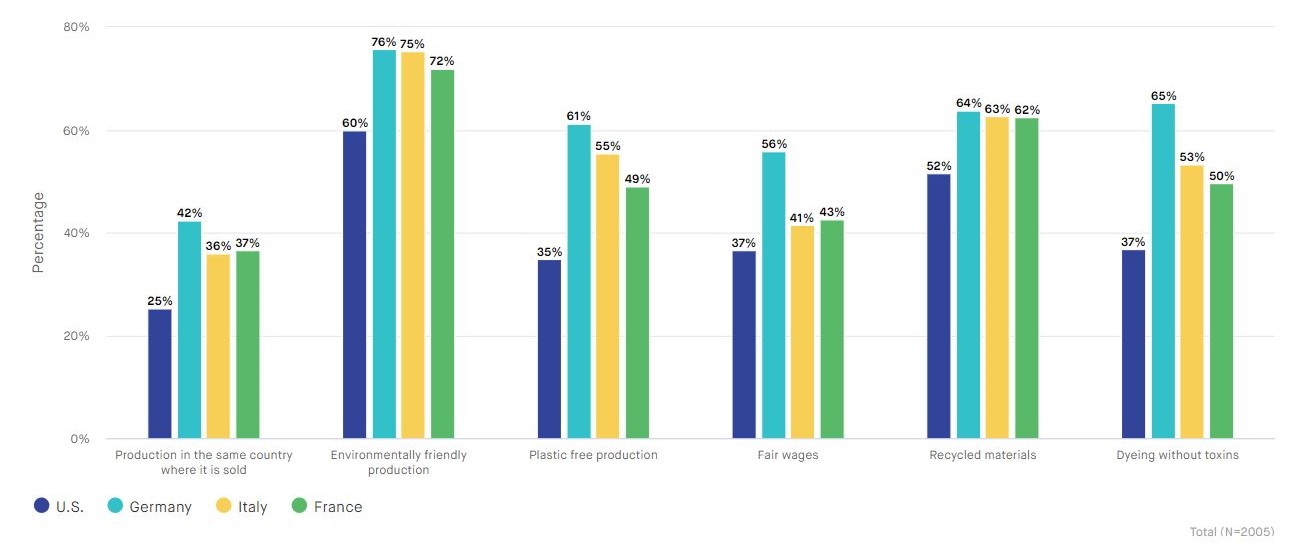
Chart: Statements representing sustainability (country comparison)
4. Fashion buyers rate Adidas and Nike as sustainable
For fashion buyers, Adidas and Nike are perceived as sustainable fashion brands. Chloé and Uniqlo are less convincing in terms of sustainability.
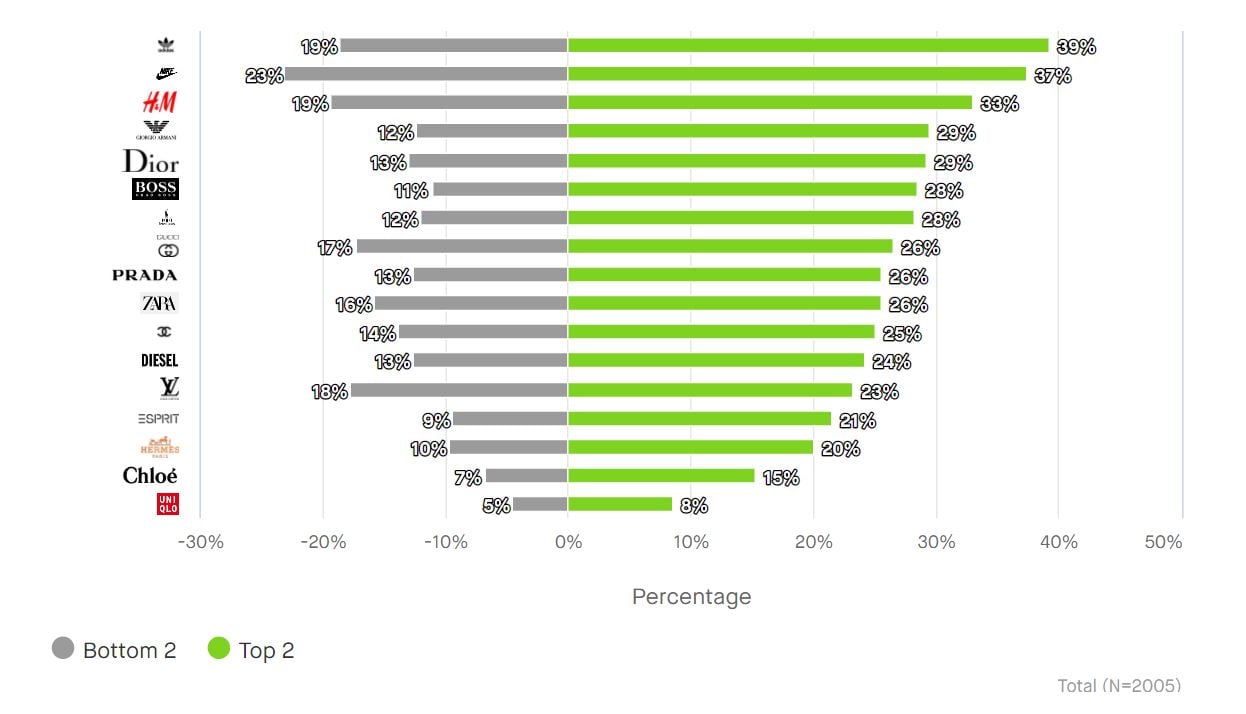 Chart: How sustainable are brands for their buyers?
Chart: How sustainable are brands for their buyers?
(All trademarks belong to their respective owners.)
Recommendations for commerce
Fair fashion and sustainability are areas where clothing brands have the most potential. A large proportion of fashion shoppers consider quality as being important for the clothes they buy and rate fair fashion as important or very important. However, there is no single factor that all consumers associate with sustainability. To reach the greatest possible number of buyers, it is extremely important to know what the relevant criteria are in the market you are serving and to be well acquainted with your shopper's needs. As part of a research project, multi-country studies offer the opportunity to quickly and easily recognize relevant country-specific areas of interest (such as sustainability).
Get a summary of the entire study now.
A tablet or desktop is recommended for optimum display.
All trademarks belong to their respective owners.
About the study
The international consumer study uses information from a total of four countries (Germany, France, Italy, and the U.S.). The respondents were clothes shoppers aged 18-69 and were analyzed according to age, sex, and region. The study was conducted using quantilope's Agile Insights software. High-quality, automated research methods from quantitative market research were used, e.g. implicit association tests (Single Association Tests) and preference rankings (Maximum Difference Scaling). The study was conducted as a multi-country study in one single project.
Do you have any more questions?
Our insights experts would be very happy to talk with you.
Contact us: Contact




